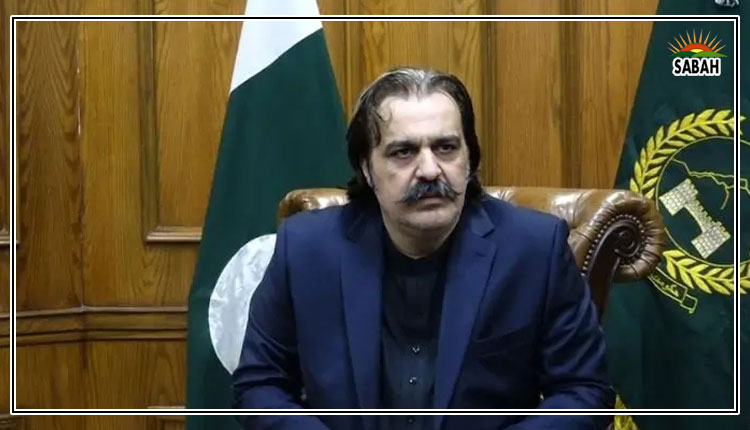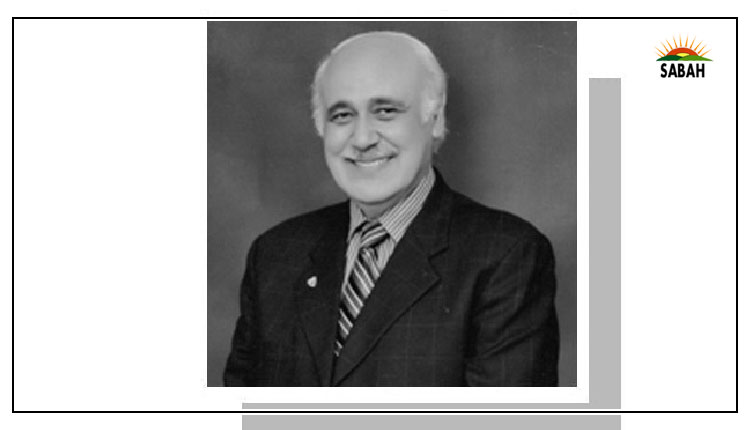Absurd truths…F.S. Aijazuddin
WELL, he would, wouldnt he? That remark by Mandy Rice-Davies (an English model) became famous in the 1960s. She and her call-girl friend Christine Keeler had become embroiled in the political scandal that brought down John Profumo, then a minister in prime minister Harold Macmillans cabinet. Mandy had been asked by a reporter outside the Old Bailey why Profumo had denied allegations of sexual impropriety between him and Ms Keeler. She retorted tartly: Well, he would, wouldnt he?
In an odd way, that word denial connects Mandy with Modi. His government denied any involvement in the murder of a Canadian citizen Hardeep Singh Nijjar, the chief of Khalistan Tiger Force. Nijjar was gunned down in June 2023 within the grounds of the Guru Nanak Sikh Gurdwara in British Columbia, on Canadian soil. Earlier in May, the Khalistan Commando Force chief Paramjit Singh Panjwar was shot dead by some unidentified assailants in Lahore, on Pakistani soil. Both assassinations took place in Commonwealth countries. The difference between the two was that, unlike the Pakistanis, the Canadians reacted with unprecedented vehemence.
Canadian PM Justin Trudeau confronted his Indian colleague with this blunt accusation: Canadian security agencies have been actively pursuing credible allegations of a potential link between agents of the government of India and the killing of a Canadian citizen, Hardeep Singh Nijjar. Modi dismissed the allegations as absurd.
Gone the previous bonhomie when Trudeau could tease Modi that he had more Sikhs in his cabinet than Modi did. Gone the diplomatic niceties when Commonwealth members bickered behind closed doors. Gone the myth that the Sikh diaspora had assimilated themselves indistinguishable except for their turbans into the corpus of their host countries.
Which area would comprise a hypothetical Khalistan?
The repeated demand by a subdivision of Sikhs for Khalistan a separate nation state has ensured that it remains as potent and combustible a factor both within India and outside it. India has 16 million Sikhs in its Punjab and 2m within reach of it. Over 8m Sikhs live outside India 800,000 in Canada, 500,000 in the US, another half million in the UK, and the rest scattered across the globe.
Khalistan is spoken of loosely as the area that is Indias Punjab. The demand for it emanated first from within India, was fuelled from across the border by Pakistans Gen Ziaul Haq and his like-minded successors. It is now a rallying call among an increasingly affluent Sikh diaspora.
To the Sikhs, geography and history coincide. The kingdom of Punjab created by the Sikh Maharaja Ranjit Singh in the mid-19th century remained roughly intact until 1947, except at its fringes and earlier when in 1846 Kashmir was sold to Raja Gulab Singh of Jammu, making him maharaja of both. In August 1947 Cyril Radcliffe sliced Punjab into two. One-third (the less arable) went to Indian East Punjab and the larger more fertile became Pakistani Punjab. In 1966, Indian PM Indira Gandhi trifurcated her Punjab to create Haryana, Himachal Pradesh, and a residual Punjab.
So, today, the question arises: which area would comprise a hypothetical Khalistan? Only the present state of Indian Punjab? Or would it also include territory in modern Pakistan that contains shrines sacred to the Sikh faith (Nankana Sahib, Punja Sahib, Kartarpur, etc)?
Might any future government of a yet unborn Khalistan also demand offshore outposts in Canada, the US, and the UK? For example, the US has Samoa, Guam, Puerto Rico, and the Virgin Islands. Britain still retains Gibraltar, the Channel Islands, Tristan da Cunha, and the Falkland Islands. Greece and Turkey share the offshore island of Cyprus, divided since 1964 on ethnic lines.
The timing of PM Trudeaus disclosure is significant. It has taken the shine off PM Modis self-coronation as a leader of South Asia. Worse, it has dented Indias ambition to secure a place as a permanent member of the UN Security Council.
He is being reminded that defying UN resolutions consistently for the past 75 years are poor credentials for a seat at its round table. Deflecting an accusation made by a fellow Commonwealth prime minister (who flew over 11,000 kilometres to confront him with credible proof of Indian involvement) is yet another unfortunate example of Indias brittle diplomacy.
PM Modi is not inclined to listen to anyone connected with the word Congress, least of all Annie Besant, the first woman president in 1917 of the Indian National Congress. She had cautioned once: Refusing to believe until proof is given is a rational position; denial of all outside of our own experience is absurd. It will take time to repair the damage done by the Nijjar/ Panjwar murders to the carefully crafted murti of Mahatma Modi. Remember, though, Gandhi was the victim, not the assassin.
Courtesy Dawn












